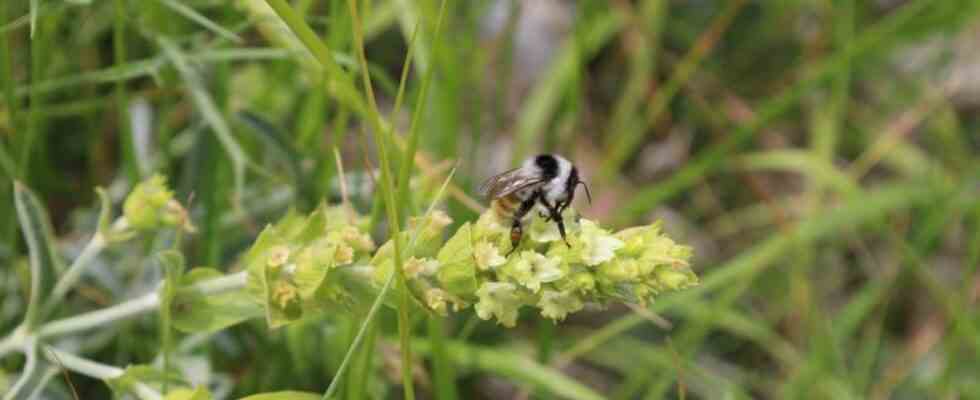Nature
Medicinal Plants: The unclaimed, threatened treasure of medicine
The climate crisis is a major threat to medicinal plants. photo
© Theodoridis/Senckenberg/dpa
Natural, inexpensive, effective: According to researchers, medicinal plants represent a huge opportunity for medicine. But one must research these resources better instead of destroying them.
Scientists want to systematically advance research into medicinal plants. The group led by Spyros Theodoridis from the Senckenberg Biodiversity and Climate Research Center in Frankfurt writes in the journal The Lancet Planetary Health that they can be used to ensure the medical supply of mankind. However, the researchers point out the dangers that the climate crisis poses to these important natural resources.
“Medicinal plants and their bioactive substances offer enormous possibilities for the future medical care of mankind – as a nature-based, inexpensive and efficient health resource. But our knowledge about them is still fragmentary,” explains Theodoridis. “Of around 374,000 known plant species, only 15 percent have been chemically analyzed so far – and just six percent have been examined from a pharmacological point of view.”
Interest in medicinal plants is increasing
The authors have researched half of the drugs approved worldwide in the past four decades based on the ingredients of medicinal plants or were developed based on them. The traditional painkiller morphine also comes from a plant, the opium poppy. Salicylic acid used to be obtained from the bark of willows and is now technically produced and slightly modified in aspirin, among other things.
In recent years, interest in medicinal plants has increased again due to new analysis methods, the authors write. The rapid developments in the fields of metabolomics – the study of metabolic products – and genomics opened up new possibilities. For example, the genes responsible for the synthesis of the substance paclitaxel, an important cancer drug, could be identified in the genome of the yew tree.
Climate crisis threatens ecosystems
At the same time, however, traditional – as well as still unknown – medicinal plants are threatened by human influence. Proven plants such as the Sideritis species, which are used as Greek mountain tea for colds, among other things, are on the verge of extinction due to excessive collection.
In addition, the climate and biodiversity crisis is threatening entire ecosystems. “In nature, the bioactive plant compounds that we use as medicinal products have specific roles in plant-ecosystem interactions, from pollination to soil quality,” explains co-author David Nogués Bravo of the university’s Center for Macroecology, Evolution and Climate Copenhagen. “Extreme temperatures, periods of drought and an increased concentration of CO2 in the atmosphere can disrupt this complex interaction.” Climate and biodiversity research must work together to create suitable protection concepts.
Using the example of Europe, the researchers have developed a series of indicators to record the potential for medicinal plants and their endangerment. The Mediterranean region and areas near the polar regions particularly stood out. “Our goal is to provide impetus for transdisciplinary global research into medicinal plants. In this way, we can achieve nothing less than a sustainable transformation of global health care in the future and secure “medical biodiversity” for future generations,” summarized Theodoridis.
study

